Catch up with the ABA Journal's 2017 Legal Rebels Trailblazers

In each of the last 12 months, the ABA Journal has checked in with a group of legal professionals who have pioneered the use of technology for problem-solving, research and innovation, among other traits. Read about them and listen to our interviews with them.
Judge Herbert Dixon: Creating high-tech courtrooms
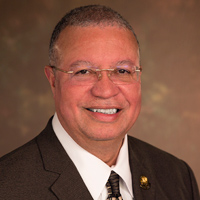
Herbert Dixon had already been eligible to retire for six years before doing so in 2015 after 30 years on the District of Columbia Superior Court. But the judge stayed on longer because he was having too much fun changing the way cases are tried by bringing high technology into the courtroom.
He likes showing young pups and others better ways to practice law.
Dixon doesn’t fit that epigram about old dogs and new tricks. He’s still proselytizing about high tech in courthouses and courtrooms, and he predicts its future.
» Read more about Judge Herbert Dixon.
Sam Glover: Lawyerist founder reports anecdata from the legal community

The website Lawyerist focuses on getting attorneys information they want. Determining what that is isn’t hard, says founder Sam Glover, because readers frequently tell him through the site’s discussion forum or on social media.
“Sometimes all you can get is anecdotes, asking as many people as you can find, to try and uncover information about stuff,” says Glover, who uses the term anecdata to describe some of the site’s reporting.
Roland Vogl: CodeX co-founder caught the entrepreneurial bug
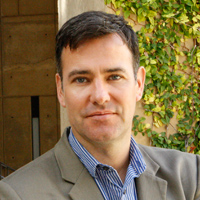
Born and raised in Austria, Roland Vogl fell in love with California almost from the moment he arrived in 1999 as a student at Stanford Law School. In particular, he was drawn to the entrepreneurial ethos of the Silicon Valley.
“The idea of … being immersed in the gung-ho spirit where people solve problems—not so much by policy and lawmaking but by building new systems—really appealed to me,” says Vogl.
Vogl co-founded CodeX—the Stanford Center for Legal Informatics in 2008 and is its executive director. In his words, CodeX functions as a network for people who want to use technology to change and improve the way the legal system works.
» Read more about Roland Vogl.
Stacy Stern: Justia exec finds real profit in making things free

Stacy Stern is in charge of revenues, among her other roles, at a successful for-profit company. But she tends to talk more about giving away products and services. It becomes obvious that she thinks giving is more important than receiving—not that Justia, the legal portal that she and her husband, Tim Stanley, created, isn’t out to make money.
But, philosophically at least, they turn the standard business model on its head. Profit for the company—which has 100-plus employees—makes it possible to put up more free stuff.
» Read more about Stacy Stern.
Lisa Solomon: Making the switch to an online legal research career
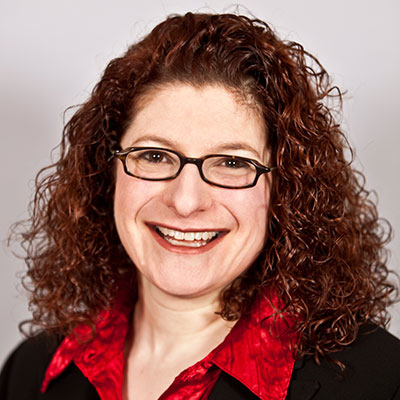
Plenty of lawyers hate to do legal research: It can be tedious and time-consuming, and one mistake can tank an entire case. For lawyers of a certain generation, the very sight of those two-toned, musty-smelling books that all look the same is enough to fill them with dread. For younger lawyers, electronic resources can be just as intimidating and mystifying.
Luckily for Lisa Solomon, she loves that kind of work.
» Read more about Lisa Solomon.
Paul Lippe: The ‘new normal’ was always about innovation
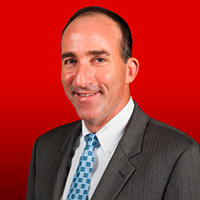
For years, Paul Lippe has been a leader in helping corporate law departments adopt the approaches used in the best and most innovative parts of their own companies—and in doing so, significantly changing the relationships with and the work done by their outside lawyers.
One of the original New Normal contributors for ABAJournal.com, Lippe’s career path has been all about change and innovation.
Richard Susskind: Law has a ‘rosy future’—if it embraces technology

For more than three decades, Richard Susskind has been one of the profession’s most prolific voices in support of implementing technology with legal services delivery. He’s the author of more than 10 books on the topic, and his next one will focus on technology in the courtroom.
“A better way of running state-based dispute resolution is largely using technology, rather than using traditional methods,” says Susskind, who is based in the village of Radlett, England, near London. “Rather than hiring a lawyer, one might instead have an online dialogue with the other party and a judge and resolve a dispute more rapidly.”
» Read more about Richard Susskind.
Michael Mills: From C-suite to co-founding Neota Logic

It’s common now for large law firms to have a chief knowledge officer to determine how technology can help lawyers do their jobs more effectively. When Michael Mills first took on that type of role for Davis Polk & Wardwell in 1990, hardly any others were around to imitate. The internet barely even existed.
As he recalls, the firm put him in charge of its tech strategy and lawyer training, development and assistance, a job he says was one of the first chief knowledge officer jobs in the law firm world (if not the first).
» Read more about Michael Mills.
John Tredennick: Catalyst founder took the lead in the ‘80s to bring tech to his law firm
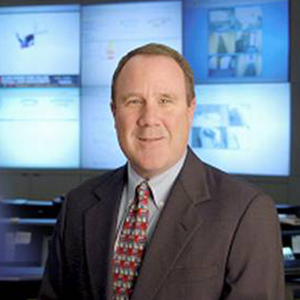
John Tredennick started a focus on legal technology in 1988—back when law firms saw it as something limited to fancy computers and adding machines.
He asked Holland & Hart, the Denver-based firm where he was a partner, to add the words chief information officer to his title. Inspiration came from an American Bar Association conference.
“The thing I took out of the conference was one simple line: Leaders step forward; they are not selected,” says Tredennick. Technology, he told Holland & Hart, could be used strategically in litigation.
» Read more about John Tredennick.
Bruce MacEwen: Diagnoses and prescriptions for law practice ills

Bruce MacEwen is both a doctor and an epidemiologist in the world of BigLaw firms.
He can diagnose structural illnesses, including aspects of the partner-as-owner model, and he can point to unhealthy customs and practices, such as when aversion to failure becomes its cause. He also can give advice and guidance for getting better and surviving or, in some instances, provide a dispassionately detailed autopsy.
MacEwen’s authoritative blog, Adam Smith, Esq., provides plenty of examples and a wealth of analysis and advice. The titles of his books illustrate the curve of his interests: Growth Is Dead: Now What? (2013), A New Taxonomy: The Seven Law Firm Business Models (2014), and Tomorrowland: Scenarios for Law Firms Beyond the Horizon (2017).
» Read more about Bruce MacEwen.
Robert Ambrogi: His blog points lawyers to tech’s opportunities

Robert Ambrogi likes to say he took a nontraditional path to becoming a legal journalist. Namely, he went to law school.
“I had been in journalism before going to law school,” says Ambrogi. “I was running a little newspaper in Springfield, Massachusetts, and working a second job to pay the bills. I had an adviser at the time, and he urged me not to get a master’s degree in journalism but to get a degree that could teach me how things worked and how things functioned. He suggested law school, which was something I had never thought of.”
» Read more about Robert Ambrogi.
Adriana Linares: IT coach who translates tech for lawyers

Adriana Linares considers it a badge of honor to work in the legal profession without being a lawyer.
Linares founded LawTech Partners in 2004 after several years in the IT departments of two of the largest firms in Florida. Now she travels across Florida, throughout the country and sometimes abroad as a law practice consultant and legal technology coach.
“Lawyers, as far as I’ve ever seen, certainly understand how to research and apply law in a way that helps their clients,” she says. “But where they might need my help is identifying tools and services that will help them with their practice management.”



